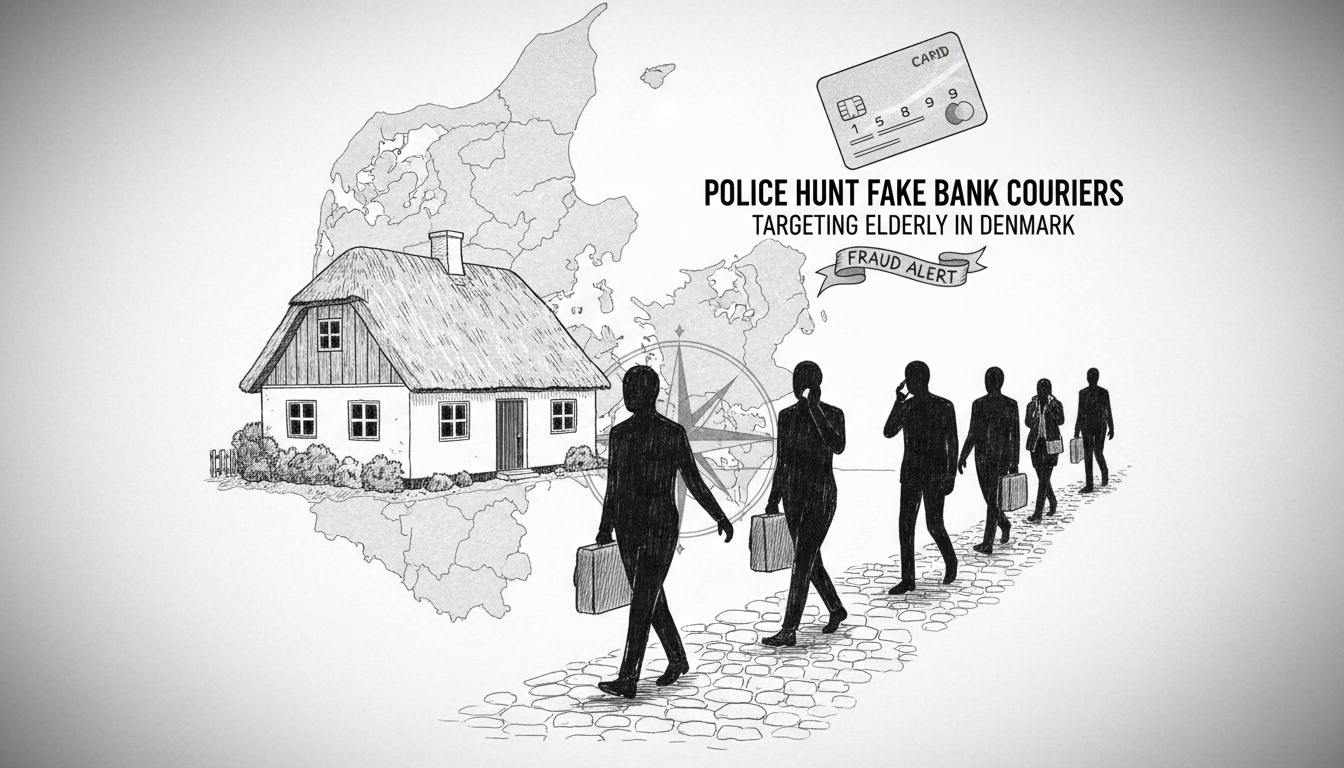Danish authorities seek public assistance identifying five individuals impersonating bank employees across Jutland communities. These suspects allegedly stole substantial cash amounts from vulnerable residents through elaborate deception schemes. Their method begins with alarming phone calls claiming bank accounts face immediate security threats. They then dispatch fake couriers offering to secure payment cards personally.
Eastern Jutland Police released surveillance images showing suspects operating in Hammel, Randers, Malling, and Aarhus municipalities. These locations represent both urban centers and smaller provincial towns where community trust remains high. The criminals specifically target elderly citizens who might feel less comfortable with digital banking systems.
When these fake bank representatives arrive at homes, they confiscate payment cards and extract PIN codes under false pretenses. They subsequently withdraw large sums from ATMs before victims realize the deception. Police previously arrested similar fraudsters earlier this year with several receiving custodial sentences.
This criminal pattern raises important questions about financial security in Denmark's welfare society. The country maintains strong social protections yet faces challenges protecting vulnerable groups from sophisticated scams. Integration policies typically focus on employment and language, but financial literacy programs for elderly and immigrant communities show notable gaps.
Danish municipalities operate numerous social centers offering citizen guidance services. These institutions could potentially expand their financial education programs to address such vulnerabilities. Community leaders in Aarhus have previously advocated for stronger fraud prevention initiatives through local cultural associations.
Police emphasize that legitimate banks and government agencies never send employees to collect cards or codes. They urge anyone recognizing the suspects to contact authorities immediately at 114. This case demonstrates how criminal methods evolve despite Denmark's generally low crime rates.
The timing coincides with national discussions about digital exclusion in an increasingly cashless society. Approximately 15% of Danes over 75 report limited digital banking competence according to recent Statistics Denmark figures. This creates potential exploitation opportunities that criminals quickly identify and exploit.
Financial fraud disproportionately impacts elderly residents and non-native Danish speakers according to consumer protection data. Successful integration requires not only language acquisition but also understanding complex financial systems. Municipal social services currently face budget constraints that limit preventive education programs.
Police encourage families to discuss financial safety with older relatives, particularly those living alone. Simple verification procedures like calling official bank numbers can prevent most such scams. Danish society maintains strong intergenerational connections that could be leveraged for better financial protection.
This investigation continues as authorities work to identify all individuals involved in the coordinated fraud operation. The case highlights ongoing challenges in balancing digital advancement with protection for society's most vulnerable members.

